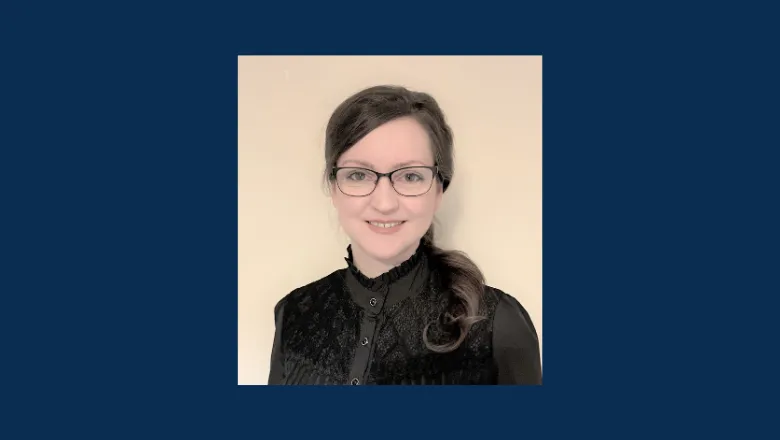Addressing the gap in person-centred assessment for people with dementia
In 2016, Dr Clare Ellis-Smith conducted a systematic review which identified that there was no person-centred outcome measure to...
13 August 2024
Dr Lesley Williamson is an early career researcher in the Florence Nightingale Faculty of Nursing, Midwifery and Palliative Care. Through her PhD research, she had determined that there was a need to improve palliative and end-of-life care for people affected by dementia, as this is an often-overlooked problem.
How can academics and researchers begin to bridge the gap between research and the real world? One route is policy briefings. A policy brief presents synthesised research findings on a policy topic, with evidence-informed recommendations. It serves to facilitate policy decision-making by making up-to-date, high-quality empirical evidence readily accessible to policy makers.

Synthesising findings
Parliamentary briefings need to be more succinct than research papers. The briefing led by Dr Williamson summarised systematic reviews and individual studies, the latter including qualitative inquiries and population-based observational designs using routinely collected data, measuring secondary care use, costs, place of death and palliative care needs among people dying with dementia.
Together, the evidence indicated a poor quality of end-of-life care, and also inequalities of care among people affected by dementia. This included escalating costs and increased emergency department attendance and hospital admission. It also indicated that people of minoritised ethnicities and of lower socioeconomic positions generally received lower quality care.
From this synthesis, it was then possible to make evidence-based recommendations for policymakers, including prioritising dementia as a life-limiting condition, ensuring equitable access to integrated palliative dementia care, optimising investment in community and primary care closer to home and investing in palliative dementia care research.
From research to Parliament
The policy brief was launched at a Parliamentary reception during Dementia Action Week. Dr Williamson was also a King’s Parliamentary Research Intern, a scheme established and overseen by Baroness Deborah Bull in collaboration with the Policy Institute and King’s Careers & Employability. It offers 10-month part-time internships to PhD and postdoctoral researchers to support the work of parliamentarians in the House of Lords. As an intern, Dr Williamson had attended several receptions and was keenly aware that these were unique opportunities to share policy briefs and secure dedicated time with policymakers.
With seedcorn funding from the Faculty, the reception was organised with over 40 guests including Peers, MPs, national clinical directors from NHS England and representatives from the Department and Health and Social Care, Royal Colleges and Societies, dementia charities and local commissioners.
Following the reception, the policy brief was brought into a debate in the House of Lords and has therefore been entered and cited in the parliamentary publication Hansard. It has also been added to the House of Commons and House of Lords Libraries; evidence in these catalogues are used to provide information to MPs and Peers to help them scrutinise legislation, prepare for debates and develop policies. The briefing is now more likely to be used to inform central policy decision-making and benefit people affected by dementia.
It was made widely accessible to increase its potential impact on policy, including being added to End of Life Care online resources from the Royal College of Nursing and accepted onto the World Health Organisation’s Global Dementia Observatory Knowledge Exchange Platform. This platform aims to support policymakers’ implementation of the WHO global action plan on the public health response to dementia.
It has also been cited in the Suffolk County Council’s Dementia Strategy and in written evidence from Sue Ryder in response to the Major Conditions Strategy. This work has also recently been presented at the Alzheimer's Association International Conference in Philadelphia in the featured research session 'Global Dementia Plan: national strategies that mobilize worldwide actions towards the WHO's 2025 target'.